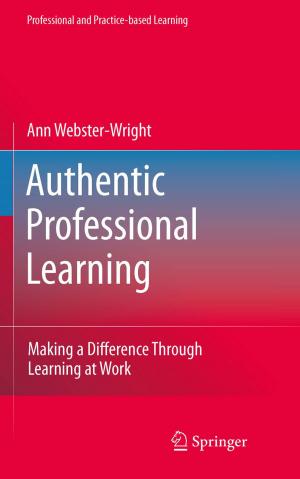The Socially Just School
Making Space for Youth to Speak Back
Nonfiction, Reference & Language, Education & Teaching, Educational Theory, Philosophy & Social Aspects, Social & Cultural Studies, Social Science, Sociology| Author: | John Smyth, Barry Down, Peter McInerney | ISBN: | 9789401790604 |
| Publisher: | Springer Netherlands | Publication: | July 8, 2014 |
| Imprint: | Springer | Language: | English |
| Author: | John Smyth, Barry Down, Peter McInerney |
| ISBN: | 9789401790604 |
| Publisher: | Springer Netherlands |
| Publication: | July 8, 2014 |
| Imprint: | Springer |
| Language: | English |
This book explores schools and how they can function as social institutions that advance the interests and life chances of all young people, especially those who are already the most marginalized and at an educational disadvantage. Social justice is a key theme as the book examines the needs of youth, the concept of school culture, school/community relations, socially critical pedagogy, curriculum and leadership and a socially critical approach to work. The Socially Just School is based upon four decades of intensive writing and researching of young lives. This work presents an alternative to the damaging school reform in which schools are made to serve the interests of the economy, education systems, the military, corporate or national interests.
Readers will discover the hallmarks of socially just schools:
- They educationally engage young people regardless of class, race, family or neighbourhood location and they engage them around their own educational aspirations.
- They regard all young people as being morally entitled to a rewarding and satisfying experience of school, not only those whose backgrounds happen to fit with the values of schools.
- They treat young people as having strengths and being ‘at promise’ rather than being ‘at risk’ and with ‘deficits’ or as ‘bundles of pathologies’ to be remedied or ‘fixed’.
- They are ‘active listeners’ to the lives and cultures of their students and communities and they construct learning experiences that are embedded in young lives.
This highly readable book will appeal to students and scholars in education and sociology, as well as to teachers and school administrators with an interest in social justice.
This book explores schools and how they can function as social institutions that advance the interests and life chances of all young people, especially those who are already the most marginalized and at an educational disadvantage. Social justice is a key theme as the book examines the needs of youth, the concept of school culture, school/community relations, socially critical pedagogy, curriculum and leadership and a socially critical approach to work. The Socially Just School is based upon four decades of intensive writing and researching of young lives. This work presents an alternative to the damaging school reform in which schools are made to serve the interests of the economy, education systems, the military, corporate or national interests.
Readers will discover the hallmarks of socially just schools:
- They educationally engage young people regardless of class, race, family or neighbourhood location and they engage them around their own educational aspirations.
- They regard all young people as being morally entitled to a rewarding and satisfying experience of school, not only those whose backgrounds happen to fit with the values of schools.
- They treat young people as having strengths and being ‘at promise’ rather than being ‘at risk’ and with ‘deficits’ or as ‘bundles of pathologies’ to be remedied or ‘fixed’.
- They are ‘active listeners’ to the lives and cultures of their students and communities and they construct learning experiences that are embedded in young lives.
This highly readable book will appeal to students and scholars in education and sociology, as well as to teachers and school administrators with an interest in social justice.















